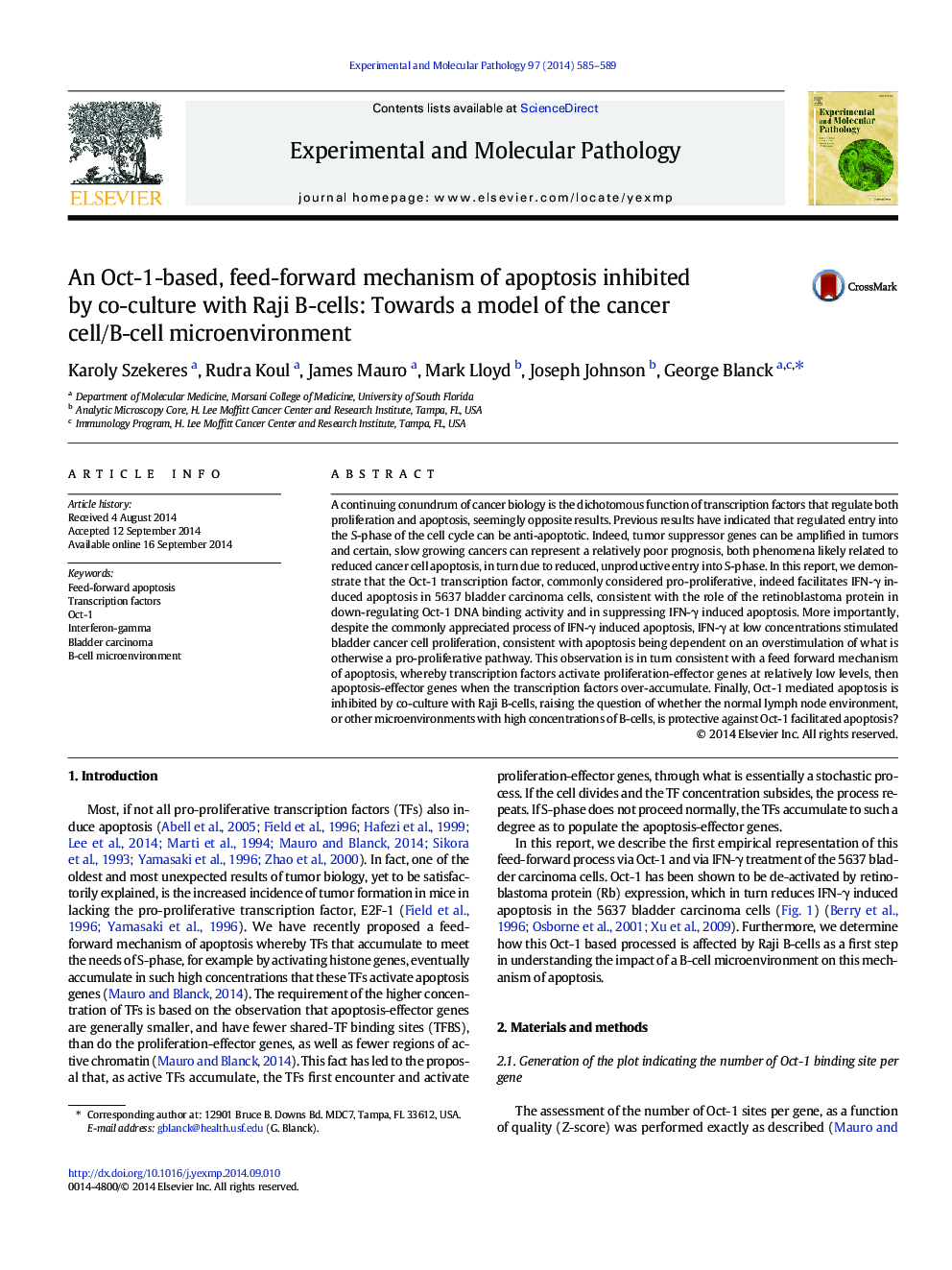| Article ID | Journal | Published Year | Pages | File Type |
|---|---|---|---|---|
| 5888153 | Experimental and Molecular Pathology | 2014 | 5 Pages |
A continuing conundrum of cancer biology is the dichotomous function of transcription factors that regulate both proliferation and apoptosis, seemingly opposite results. Previous results have indicated that regulated entry into the S-phase of the cell cycle can be anti-apoptotic. Indeed, tumor suppressor genes can be amplified in tumors and certain, slow growing cancers can represent a relatively poor prognosis, both phenomena likely related to reduced cancer cell apoptosis, in turn due to reduced, unproductive entry into S-phase. In this report, we demonstrate that the Oct-1 transcription factor, commonly considered pro-proliferative, indeed facilitates IFN-γ induced apoptosis in 5637 bladder carcinoma cells, consistent with the role of the retinoblastoma protein in down-regulating Oct-1 DNA binding activity and in suppressing IFN-γ induced apoptosis. More importantly, despite the commonly appreciated process of IFN-γ induced apoptosis, IFN-γ at low concentrations stimulated bladder cancer cell proliferation, consistent with apoptosis being dependent on an overstimulation of what is otherwise a pro-proliferative pathway. This observation is in turn consistent with a feed forward mechanism of apoptosis, whereby transcription factors activate proliferation-effector genes at relatively low levels, then apoptosis-effector genes when the transcription factors over-accumulate. Finally, Oct-1 mediated apoptosis is inhibited by co-culture with Raji B-cells, raising the question of whether the normal lymph node environment, or other microenvironments with high concentrations of B-cells, is protective against Oct-1 facilitated apoptosis?
